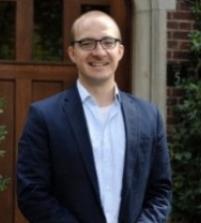Look at this Tangle of Thorns
Almost two weeks ago, Texas authorities raided the sprawling ranch of the Fundamentalist Church of Jesus Christ of Latter-day Saints
Almost two weeks ago, Texas authorities raided the sprawling ranch of the Fundamentalist Church of Jesus Christ of Latter-day Saints. Acting on a call from a sixteen-year-old girl inside the compound who said she was being abused by her fifty-year-old husband, law enforcement swept onto the site, seizing property as evidence of widespread sexual abuse, breaking down the door of the group's monumental temple, and removing over four hundred children into state custody.
Child abuse, particularly sexual abuse, is generally an easy thing to condemn. Here, however, the alleged criminal acts are knotted with issues of personal choice and religious freedom that we as a public culture are conditioned to respect. To be sure, few people outside of the sect have come to its unqualified defense. Comments from historian and legal scholar Sarah Barringer Gordon sum up the common response: "Allowing differences, creativity and individuality is vitally important," she said, but child abuse "is the end of religious liberty every time." At the same time, a patina of guilt clings to the image of children separated from their mothers, of Texas Rangers using the jaws of life to try to pry open a consecrated temple of God. The guilt has gotten to a doctor working with the children in state custody and their mothers, quoted in the Salt Lake Tribune: "Even though I don't agree with their lifestyle, I got the impression that in their own little world it made sense."
The guilt comes not just from an American sensibility that people ought to be left alone "in their own little world," but also from the details of this particular case that make a certain type of educated reader reluctant to judge. First and foremost is the obvious sexual element. Most modern men would deny fascination with polygamy's promise of sanctioned access to a variety of willing women, but the same fascination surfaces, in designer clothes rather than homespun, in breathless reporting on the exploits of "billionaire playboys," professional athletes, and rock stars. The homespun itself is another problem. "The girls wear long, pioneer-style dresses and keep their long hair pinned up in braids," the Washington Post dutifully reports. Scholars and others wary of the media's thirst for spectacle and sensitive to the human inclination to equate "different" with "wrong" know abject voyeurism when they see it, and our aversion to it makes us want to look away out of respect for the subject.
But we have to keep looking. Courts in Texas will decide what laws have been violated, if any, according to the age and relative complicity of girls involved. But raising a girl to believe that the greatest potential for her life lies under the bulk of a man three or four times her age is something beyond a mere crime. Legal categories of abuse aren't deep enough to capture what has been done to a child who refers to the entire planet beyond the fences of a 1,700-acre plot in Texas as the "outsiders' world."
There are certainly reflective, educated women who choose polygamy and can articulate the reasons why; I've met some of them, and they are as appalled by child abuse as anyone else. There may even be such women, married to equally sincere and thoughtful men, in the FLDS Church. Moreover, the FLDS Church has no monopoly on the frustration of the dreams that children deserve to have – inner cities and poor stretches of Appalachia and war zones worldwide do the same, all the time. The combination of systematic social isolation, plural marriage, and a group of men apparently open to marrying girls at menarche, though, localized on a spot in Texas and subject to explicit laws, offers a rare tangible object for the scorn of those who believe that children should be raised with hopes and options.
The most likely scenario going forward is that the state of Texas will lack the resources and ultimately the will to place so many women and children in different lives. The currently dispersed members of the group will follow familiar channels back to where they were a couple of weeks ago, reconstituting the church with a brand new story to tell about themselves and about the threat of the outside world and, saddest of all, a terrifying new lesson to young women about what happens when you call for help. But if the hearings that take place in the meantime create a public discourse that overcomes outsiders' guilt, something worthwhile and lasting may still be accomplished.
Seth Perry is a Ph.D. student in the History of Christianity at the University of Chicago Divinity School.


